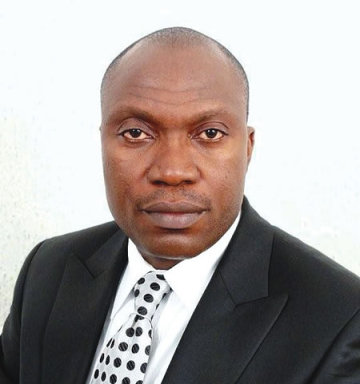The Managing Director of the Cowrie Asset Management Limited, Mr. Johnson Chukwu has said that the agricultural sector dominated the economic performance in the year 2018.
Chukwu who made this assertion in an interview with Primetime Reporters in Lagos recently acknowledged that there were some sectors like the transport sector that recorded very significant growth.
He however added that because those accounted for very inconsequential size of the Gross Domestic Product (GDP), they would not form the basis for anyone to really say that they had material impact on the economy.
“So, if you want to look at the sector that really determined the growth that we recorded last year, you have to look at the agricultural sector because the agricultural sector in the third quarter of last year accounted for 29% of the GDP and grew by 1.91%. The GDP eventually ended up growing at 1.81% which actually means that it was the agricultural sector that contributed about one third of the GDP.
“So, I think that if one is to actually determine which sector of the economy that drove economic growth or the economic performance, I think agricultural sector dominated the economic performance last year”, he said.
Making a comparative analysis of the Nigerian economy between the year 2017 and 2018, Chukwu observed that there was some level of improvements as the economy grew by only 0.82% in 2017 whereas in 2018, the economy grew in the first quarter by 1.95%, second quarter 1.5% and third quarter 1.81% adding that on the average, one should expect that economy must have grown last year on an average of 1.7 to 1.75% which according to him, more than doubled the growth rate recorded in 2017.
He said,” But in some other parameters, the economic condition worsened. Take for instance the issue of unemployment; we saw an unemployment rate of 18.8% in 2017 that worsened to more than 20% in 2018. We also saw the number of the unemployed also increased dramatically in 2018. We also saw the number of out of school children also increased from about 10 million to about 13.5 million.
“So, in terms of measure of growth in the economy, we saw some improvement but in terms totality of human capital development, of economic welfare and well-being, we saw it worsened in 2018 principally because the economy was growing at a rate below the population growth rate. We know that the Nigerian population is growing at 1.9% to 2.3% per annum with an economic growth rate of less than 2%, certainly you will see an increase in the incidence of poverty which was also why we saw at the end of last year that the number of extremely poor people increased to about 88 million.
“So, if you want to measure the performance of the economy, you have to look at the other parameters. If you only isolate the GDP growth, you will see some improvement but because of the slow growth rate compared to the population growth, you will also see deterioration in the standard of living.
“We saw an improvement on inflation, in 2017, the inflation rate came in January 2017 at 18.72%, by the time we got to December 2018, the inflation rate had dropped to 11.44%. So, on inflation rate, we saw an improvement on inflation rate. There was also improvement in the exchange rate. We saw the exchange rate stabilizing in 2018 and retained an average of N360 to N362 at the parallel market window”.
Send your news, press releases/articles to augustinenwadinamuo@yahoo.com. Also, follow us on Twitter @ptreporters and on Facebook on facebook.com/primetimereporters or call the editor on 07030661526, 08053908817.

